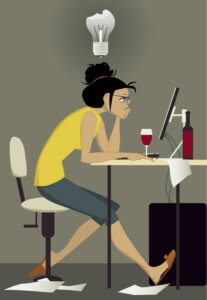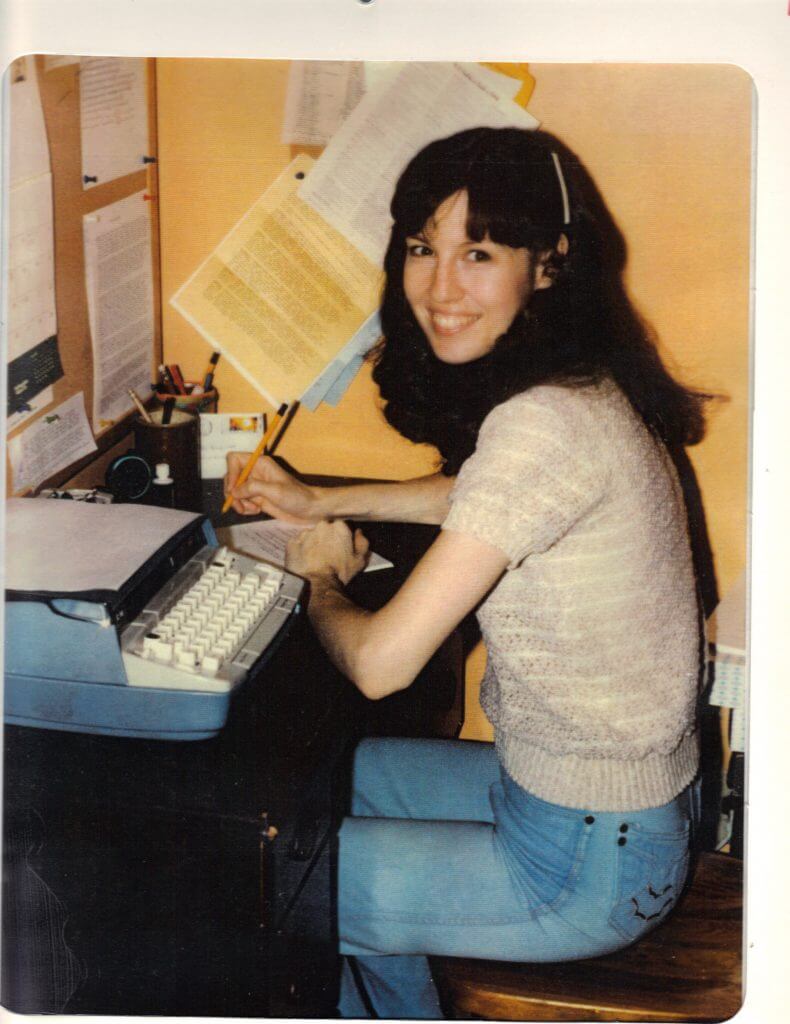 We are invited to get into the yoke with Jesus to do the writing God has called us to do. (Matthew 11:28-30) This way of working promises ease and rest for our souls. However, writing with ease and a light burden was not my writing experience for 35 years (not since writing changed from hobby-writing in a closet painted orange to a means of keeping a roof over our heads).
We are invited to get into the yoke with Jesus to do the writing God has called us to do. (Matthew 11:28-30) This way of working promises ease and rest for our souls. However, writing with ease and a light burden was not my writing experience for 35 years (not since writing changed from hobby-writing in a closet painted orange to a means of keeping a roof over our heads).
I had my time-tested, never-fail method to meet deadlines (claim Bible verses about strength, grit teeth, white knuckle it and “just do it!” ) However, almost a year ago, my method stopped working. There were many factors. Even before dealing with Covid, life had become one thing piled on top of another to the point that, unless I discovered a much easier writing method, I would need to quit. Retire. Pack it in.
I couldn’t stand the idea. I loved the project I was working on, but something would have to change. One morning I was reading some familiar verses when they suddenly took on new meaning.
Writing Made Easy
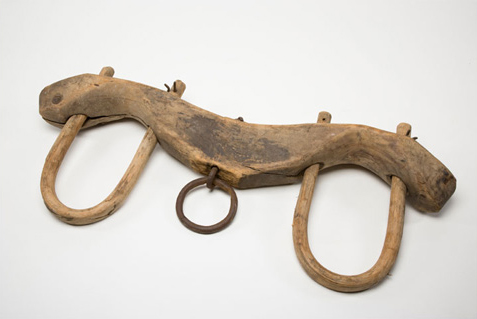 “Come to Me, all who are weary and heavily laden, and I will give you rest. Take My yoke upon you and learn from Me, for I am gentle and humble in heart, and you will find rest for your souls. For MY yoke is easy to bear, and My burden is light.” (Matthew 11:28-30)
“Come to Me, all who are weary and heavily laden, and I will give you rest. Take My yoke upon you and learn from Me, for I am gentle and humble in heart, and you will find rest for your souls. For MY yoke is easy to bear, and My burden is light.” (Matthew 11:28-30)
If His yoke was easy to carry, then whose heavy yoke was I in? I needed a new working style. Could I manage to switch yokes? I needed to learn more about yokes.
Equally or Unequally Yoked?
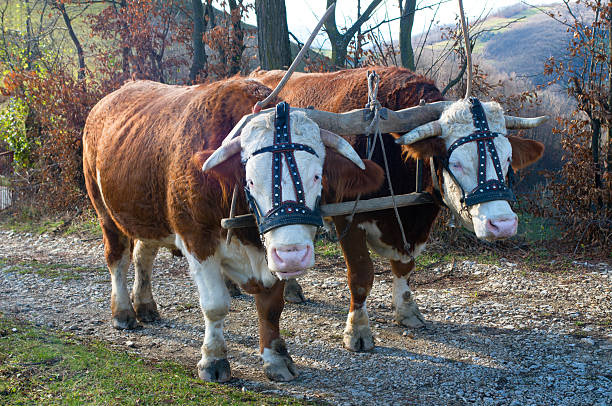
Farmers know that two animals yoked together must be suited to work in tandem. If one is big and stronger than the other, injury or failure is certain. Deuteronomy 22:10 says, “Thou shalt not plow with an ox and an ass together.” They are different both in strength and temperament.
So, at first glance, the invitation to get into the yoke with Jesus seems unworkable. None of us imagines that we are equally powerful! Actually, Jesus had in mind a different kind of yoke. They were hand-carved to fit the animals perfectly so the yoke didn’t rub and cause irritation, no matter how different the animals were in size or strength.
 So, in Jerusalem at the time Jesus was speaking, a yoke often did join two unequal animals for a specific purpose; one was older or stronger or wiser, and the other was young and inexperienced. The animals were yoked together so that the more experienced animal could teach the younger, weaker animal how to do the work without strain, injury and being burdened down. (A perfect description of Matt. 11:28-30.)
So, in Jerusalem at the time Jesus was speaking, a yoke often did join two unequal animals for a specific purpose; one was older or stronger or wiser, and the other was young and inexperienced. The animals were yoked together so that the more experienced animal could teach the younger, weaker animal how to do the work without strain, injury and being burdened down. (A perfect description of Matt. 11:28-30.)
So how would that work for my writing? Could I learn to “write in the yoke” for the rest of my career? These promises gave me hope: “I will give you rest…you will find rest for your souls… my yoke is easy, and my burden is light.”
So, I have been experimenting with a writing method based on those verses. Could I write without stress and pressure and drama, but still have a peaceful rested soul?Happily, I am learning that the answer can be yes.
Types of Days in the Yoke
For me, writing in the yoke means responding to the Lord’s gentle tug or slight inner pressure to get moving—or to stop. This means writing at the Lord’s pace, because He knows what schedule works best for my health and writing.
There is a learning curve to this. I have three distinct types of “days in the yoke.” Some days my “stubborn donkey” wants to procrastinate, ignoring the tug to get writing. Resisting the gentle pull, I sometimes dig my feet in with determination. I write either with reluctance or downright resistance.
Other days my donkey over-reacts in the opposite direction. I am behind schedule, so letting the bigger animal set the pace feels too risky. I worry that the gentle steady pace can’t possibly produce the words on time! So I try to hurry Him along, push and strain, and check my watch and word count continuously.
Glorious Writing in the Yoke
Thankfully, there is a third type of day, which happens more frequently the longer you practice. These I call the Glorious Writing Days, when I get in the yoke early in the day, stay in it, and start and stop when I feel the gentle tugs and nudges. I don’t clock watch, and I don’t count words till the end of the day. Amazingly, I produce more writing (often lots of it!) but with no ill effects of physical pain or emotional exhaustion. I even quit by 5:00, something I hadn’t done in years! It produces a satisfying, contented tired feeling from being productive without hurting myself.
My experiment with “writing in the yoke” seems to be working. Slowly but surely, I am transforming from a hard-working, burned-out writer to a productive writer who can work with ease. I had prayed for years about improving my health and stamina so I would never have to retire simply because I couldn’t physically do the job anymore. Becoming an “easy writer” appears to be a very big piece of that answer.
[First published August 23, 2020 on the ACFW National website]
 I appreciate SO VERY MUCH all the emails over the past few months inquiring about my health.
I appreciate SO VERY MUCH all the emails over the past few months inquiring about my health. 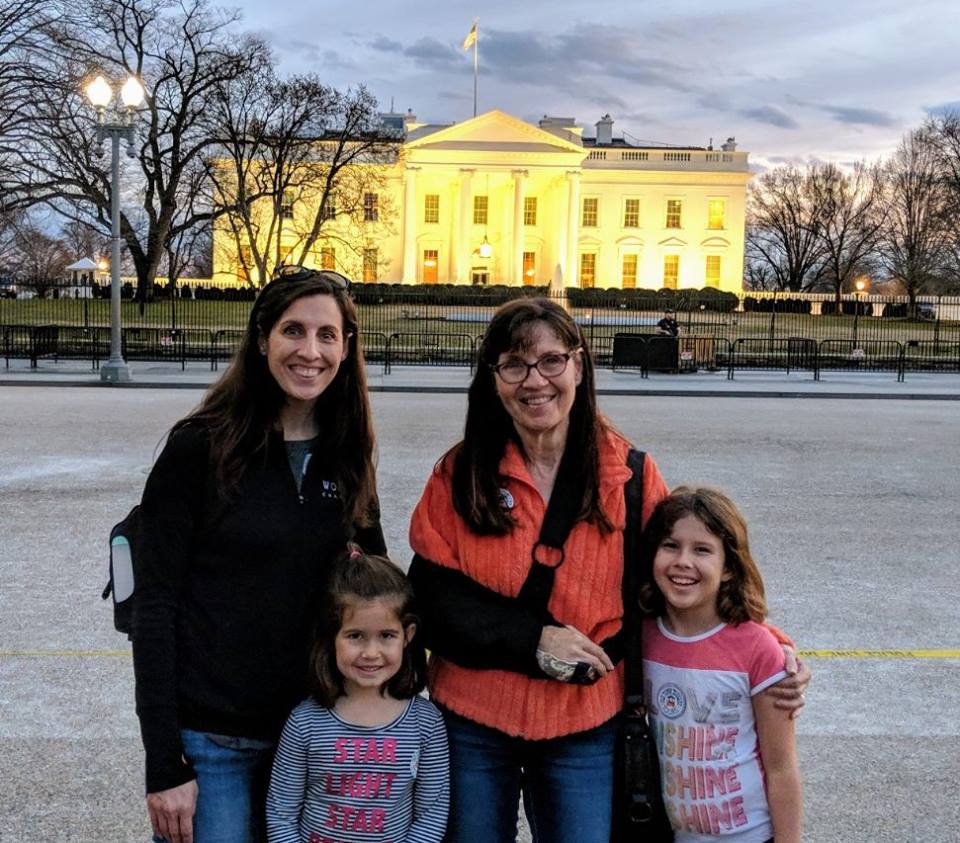
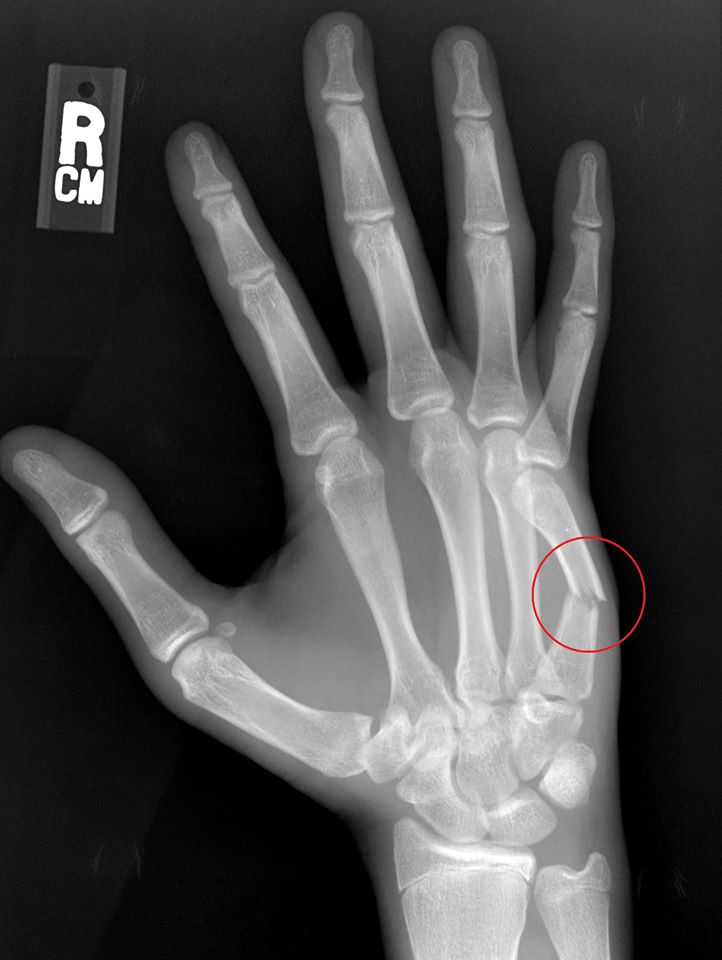
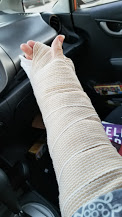
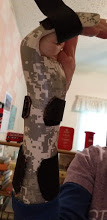
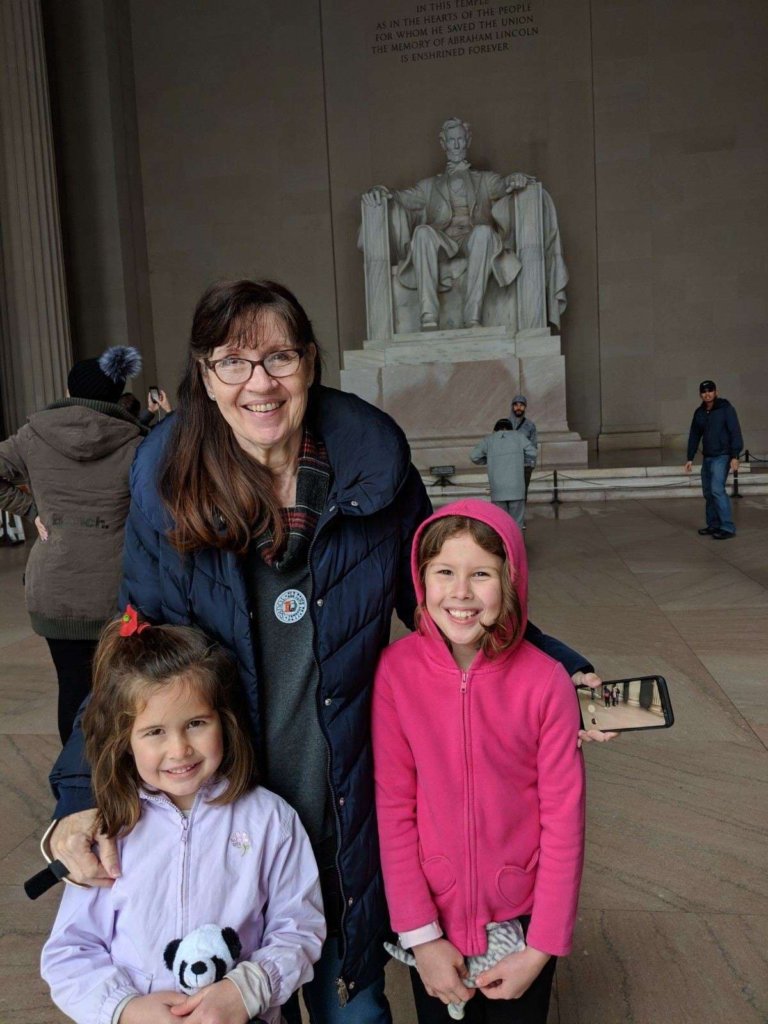
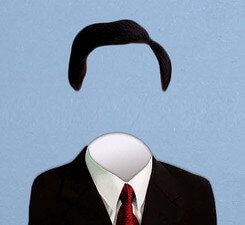 I appreciate the notes I’ve received since re-starting the blog this month. I was asked a number of times, “Where have you been the last two years?” Because my Writer’s First Aid blog is all about helping writers hang in there and not quitting and not giving up on writing dreams, it’s certainly a legitimate question. As one person asked, “When writers disappear, where do they go?”
I appreciate the notes I’ve received since re-starting the blog this month. I was asked a number of times, “Where have you been the last two years?” Because my Writer’s First Aid blog is all about helping writers hang in there and not quitting and not giving up on writing dreams, it’s certainly a legitimate question. As one person asked, “When writers disappear, where do they go?”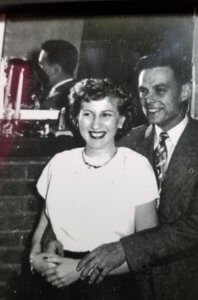
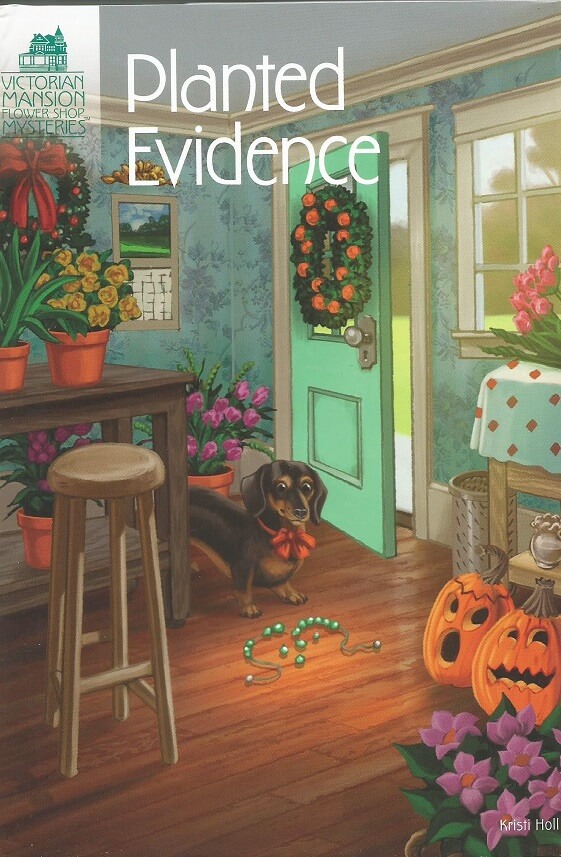
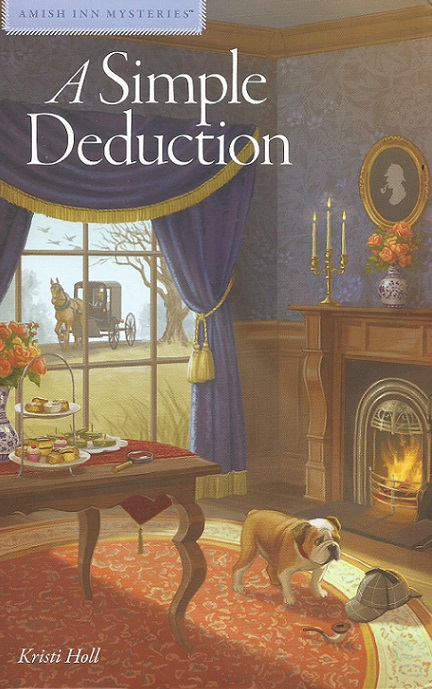
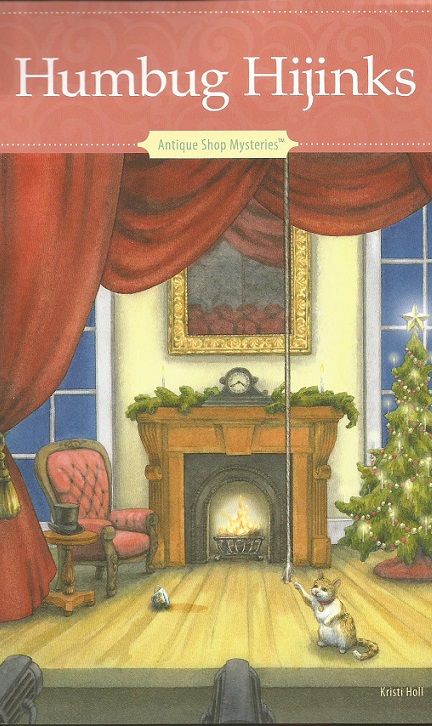
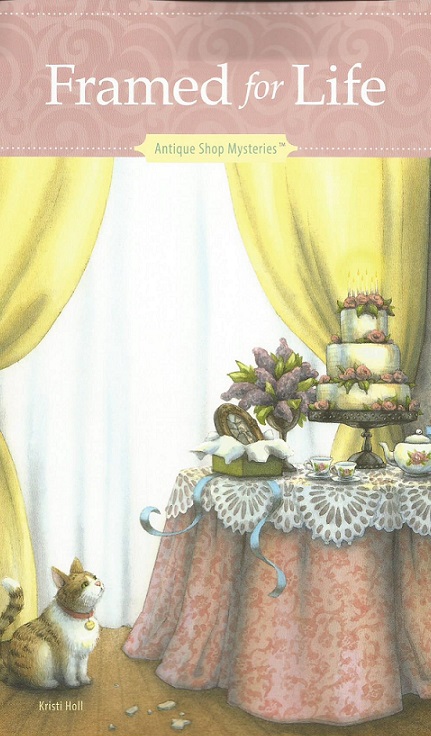
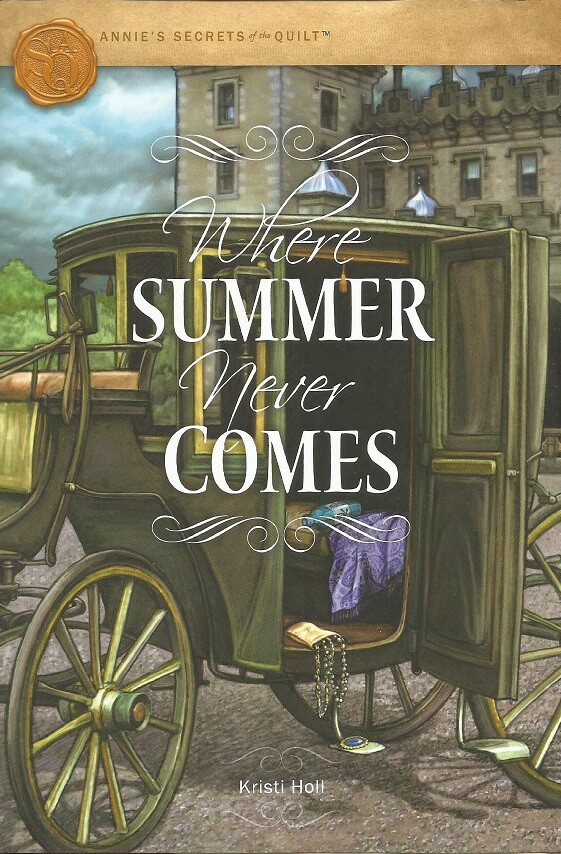
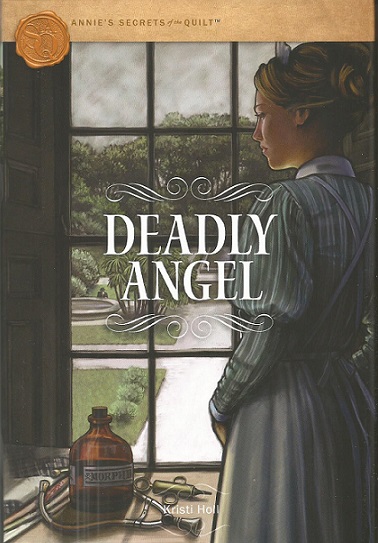
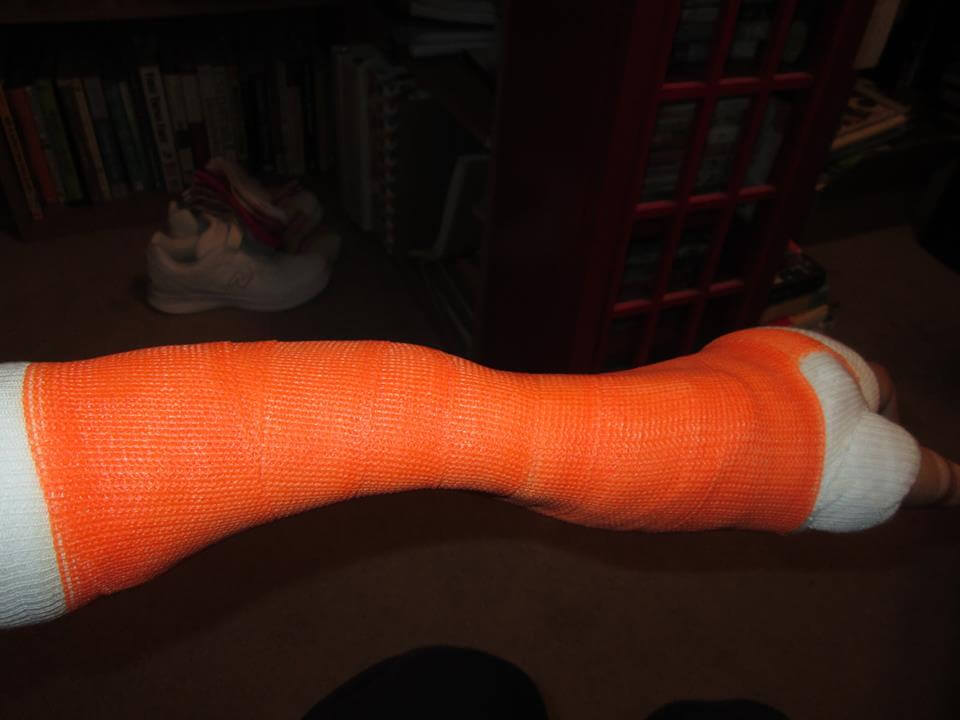 In April of 2017, I was gardening in the back yard
In April of 2017, I was gardening in the back yard Once the last cast came off, I had to start typing, but after all summer in casts, my wrist was frozen in a position with the thumb pointing up. I couldn’t rotate my wrist so that the palm faced up or down. I knew that the physical therapy later for my wrist would correct this, but in the meantime, I couldn’t type on a regular keyboard.
Once the last cast came off, I had to start typing, but after all summer in casts, my wrist was frozen in a position with the thumb pointing up. I couldn’t rotate my wrist so that the palm faced up or down. I knew that the physical therapy later for my wrist would correct this, but in the meantime, I couldn’t type on a regular keyboard.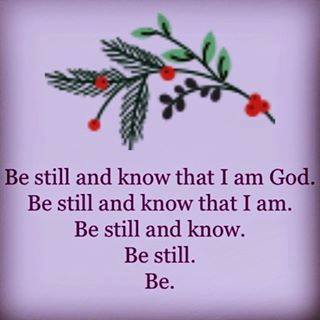 I had had a lot of thinking time when in my casts since I couldn’t drive, and for a long time it was painful to ride anywhere in a car. It gave me time to think, to evaluate my frenetic writing lifestyle, and make some changes.
I had had a lot of thinking time when in my casts since I couldn’t drive, and for a long time it was painful to ride anywhere in a car. It gave me time to think, to evaluate my frenetic writing lifestyle, and make some changes.  The most joyous event in recent years happened just two months ago. My middle daughter, Laurie, was married outdoors at a ranch in Tucson, and she was just the most beautiful bride. All four of my grandkids had parts in the wedding. I try to respect my kids’ privacy, but I’m going to post just one photo of the girls and me. Our whole family welcomed her husband, Jeff, with open arms. Isn’t it wonderful how a joyous event like this can totally eclipse the tougher events?
The most joyous event in recent years happened just two months ago. My middle daughter, Laurie, was married outdoors at a ranch in Tucson, and she was just the most beautiful bride. All four of my grandkids had parts in the wedding. I try to respect my kids’ privacy, but I’m going to post just one photo of the girls and me. Our whole family welcomed her husband, Jeff, with open arms. Isn’t it wonderful how a joyous event like this can totally eclipse the tougher events?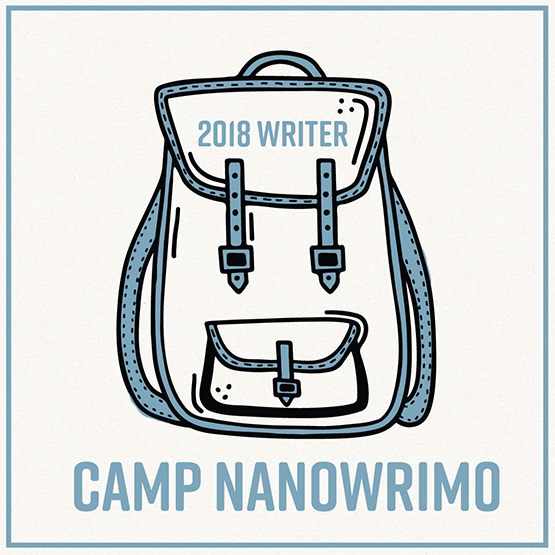 Camp NaNoWriMo is a writing challenge that happens in July. It’s different from NaNoWriMo in November because you can work on ANY type of creative project of any length, not just a 50,000-word novel. First drafts or revision, scripts or stories or poems or essays… all are welcome! You track your goals based on word count, hours, or pages, and they welcome word-count goals between 30 and 1,000,000 words.
Camp NaNoWriMo is a writing challenge that happens in July. It’s different from NaNoWriMo in November because you can work on ANY type of creative project of any length, not just a 50,000-word novel. First drafts or revision, scripts or stories or poems or essays… all are welcome! You track your goals based on word count, hours, or pages, and they welcome word-count goals between 30 and 1,000,000 words.